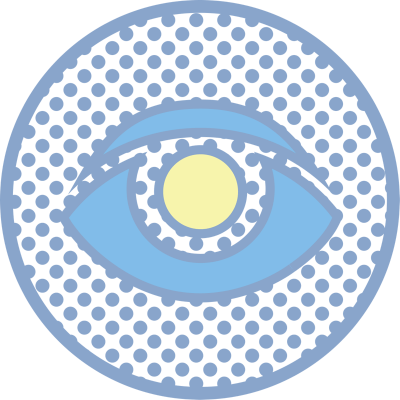What is Posterior Subcapsular Cataract?
Posterior Subcapsular cataract is a type of cataract, where in, there is opacification in the posterior or back portion of the crystalline lens. This type of cataract can occur alone or in combination with other types of cataracts as well. But the primary occurrence posterior Subcapsular cataract per se is less. Posterior Subcapsular cataract can cause significant reduction in vision because of the central position occupying the papillary area.
Symptoms of Posterior Subcapsular Cataract
All the different types of cataracts, posterior subcapsular cataract develops the fastest. Therefore, it is important to be alert for any sign of symptoms. Some of the posterior subcapsular cataract symptoms are
-
Blurring of vision
-
Glare and halos, especially when exposed to bright lights, like that of headlights at night
-
Defective near vision
-
Diplopia or polyopia, in some cases.
-
Reduction in contrast sensitivity

Posterior Subcapsular Cataract Causes
Do you know what causes posterior subcapsular cataract? Before going for any treatment, it is imperative to know the various causes. This not only helps in effective treatment and healing but also lets you know how to prevent the cause of such cataracts in the future. Below mentioned are some of the posterior subcapsular cataract causes:
-
Ageing
-
Exposure to steroid medications for long duration
-
Blunt trauma
-
Intraocular inflammation
-
Uncontrolled diabetes
-
Skin disorders, such as atopic dermatitis
Posterior Subcapsular Cataract Risk Factors
Diabetes patients with allergic disorders necessitation steroids
- Atopic dermatitis
- Asthma
- Autoimmune disorders

Posterior Subcapsular Cataract Prevention
-
Avoiding long term steroids
-
Strict blood sugar control
-
Protecting the eye from blunt ocular trauma
Grading Posterior Subcapsular Cataract
Presently, cataract cannot be prevented. But due to advancement of technology, vision can be restored through surgery. The classification and grading of cataract are of great relevance for evaluation of potential anti cataract drugs. The World Health Organisation (WHO) has simplified grading to encourage studies by ophthalmologists.
In case of posterior subcapsular cataract (PSC), the cataract typically has a feathered appearance. When the PSC is in focus, the pupillary margin is blurred and only the retroillumination opacity is focused and graded. The posterior subcapsular cataract grading is done according to vertical diameter. For multiple PSCs, only the most clearly visible opacities with distinct borders should be considered.
Posterior Subcapsular Cataract Diagnosis
The diagnosis of posterior subcapsular cataract is best done by slit-lamp examination. Ophthalmoscopic examination is also done to diagnose posterior subcapsular cataract.
Posterior Subcapsular Cataract Treatment
Posterior Subcapsular cataract treatment typically involves surgical intervention to remove the cloudy lens and replace it with an artificial one, restoring clear vision.
- Surgery is the mainstay of treatment for patients with PSCC. Phacoemulsification surgery can be used for these patients, where in an Ultrasonic probe is used to break the cataract and suck the lens material out of the eye through a small incision (2-3mm) and a foldable intraocular lens (IOL) is implanted inside the eye.
- Spectacles can help in very early cases, only to a small extent
If you or someone close to you has developed Posterior Subcapsular Cataract, do not put off an eye test. Walk into Dr. Agarwals Eye Hospital for an appointment with top specialists and surgeons in the field of eye care. Book an appointment now for Posterior Subcapsular Cataract Treatment and other Eye Treatment.
Written by: Dr. Moses Rajamani – Consultant Ophthalmologist, Kanchipuram
Frequently Asked Questions (FAQs)
What characterizes a Posterior Subcapsular Cataract (PSC)?
A Posterior Subcapsular Cataract (PSC) forms on the back surface of the lens capsule in the eye.
What are the primary symptoms associated with Posterior Subcapsular Cataracts?
Primary symptoms include blurred vision, sensitivity to light, glare, and difficulty seeing in low light conditions.
How does a Posterior Subcapsular Cataract develop within the eye?
PSC typically develops due to aging, but can also be caused by factors like long-term steroid use or certain medical conditions.
Are there specific risk factors linked to the development of Posterior Subcapsular Cataracts?
Risk factors include aging, diabetes, prolonged steroid use, excessive UV exposure, and certain genetic factors.
What treatment options are available for Posterior Subcapsular Cataracts at Dr Agarwals Eye Hospital?
Once the cataract significantly affects vision and daily activities, surgery is often recommended. Cataract surgery involves removing the cloudy lens and replacing it with an artificial intraocular lens (IOL) to restore clear vision. Dr Agarwals Eye Hospital likely offers advanced surgical techniques such as phacoemulsification, which is a minimally invasive procedure commonly used for cataract removal. It iss essential to consult with an ophthalmologist at the hospital to determine the most suitable treatment plan based on individual needs and the severity of the cataract.

Do not ignore eye trouble!
Now you can reach our senior doctors by booking an online video consultation or a hospital appointment
Book an appointment now